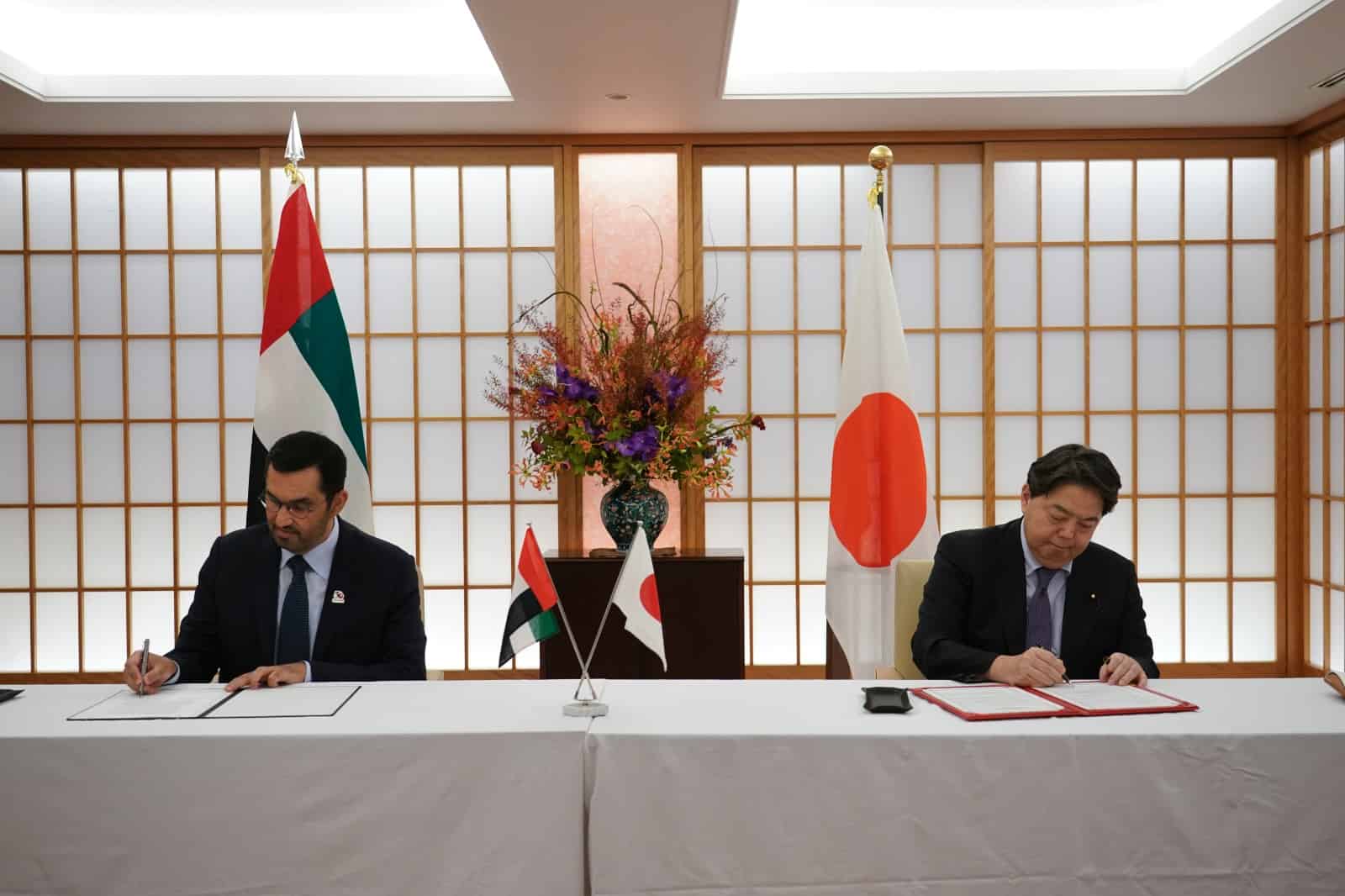TOKYO, JAPAN – Minister of Industry and Advanced Technology and UAE Special Envoy to Japan Dr. Sultan bin Ahmed Al Jaber and the Prime Minister of Japan Fumio Kishida have signed the UAE-Japan comprehensive strategic partnership agreement.
The strategic partnership agreement document was recently launched by Sheikh Khaled bin Mohamed bin Zayed Al Nayan, Member of the Abu Dhabi Executive Council and Chairman of the Abu Dhabi Executive Office.
Dr. Al Jaber said that the UAE and Japan share strong and advanced strategic ties and drive sustainable economic and social growth.
The UAE-Japan strategic partnership agreement aims to bolster relations between the two countries to advance their common interests, by encouraging further diplomatic, economic, political, trade and investment collaborations.
The key areas of the partnership include diplomacy, enhancing international development and humanitarian aid efforts.
They also include cooperating across business, trade, energy and industry by enhancing business environment to encourage trade and investment across technology, manufacturing, infrastructure, artificial intelligence, healthcare, and SMEs, as well as other high-priority sectors.
The partnership agreement includes agriculture, environmental preservation, climate change solutions, education, science and technology, defense and security.
Japan announced that UAE citizens holding ordinary passports will be exempt from visa requirements to enter the country.
The announcement of the exemption implementation date will be announced later.
Dr. Al Jaber underscored the deep-rooted, distinguished friendship and cooperation between the two countries which are celebrating the 50th anniversary of the establishment of their diplomatic ties.
He said that Japan’s exemption of UAE citizens from visa requirements is the result of the diplomatic efforts done by Sheikh Abdullah bin Zayed Al Nahyan, Minister of Foreign Affairs and International Cooperation.
Dr. Al Jaber said that the step will facilitate cooperation and travel which will stimulate an increase in exchanged tourist, cultural and academic visits between the two countries.
It will also enhance the prospects for cooperation to establish new businesses and start new investments.








